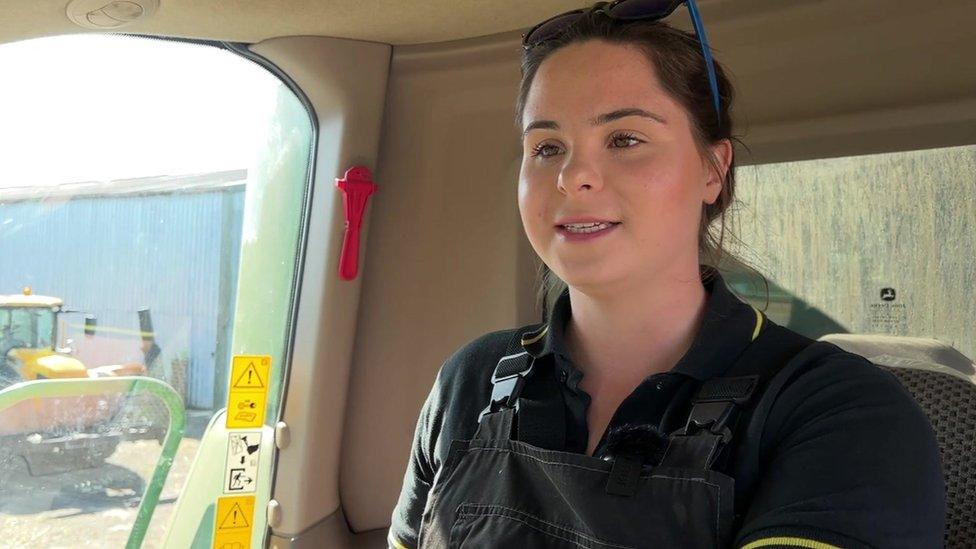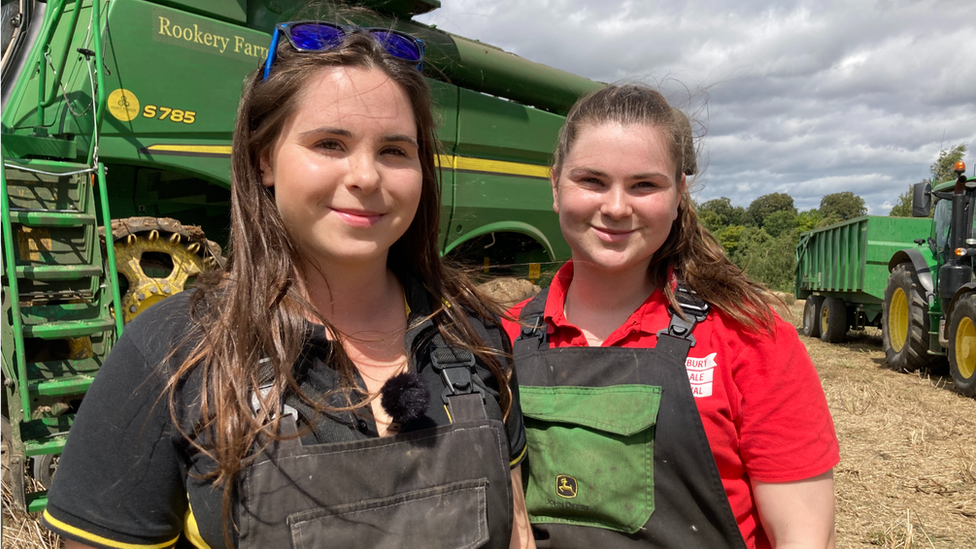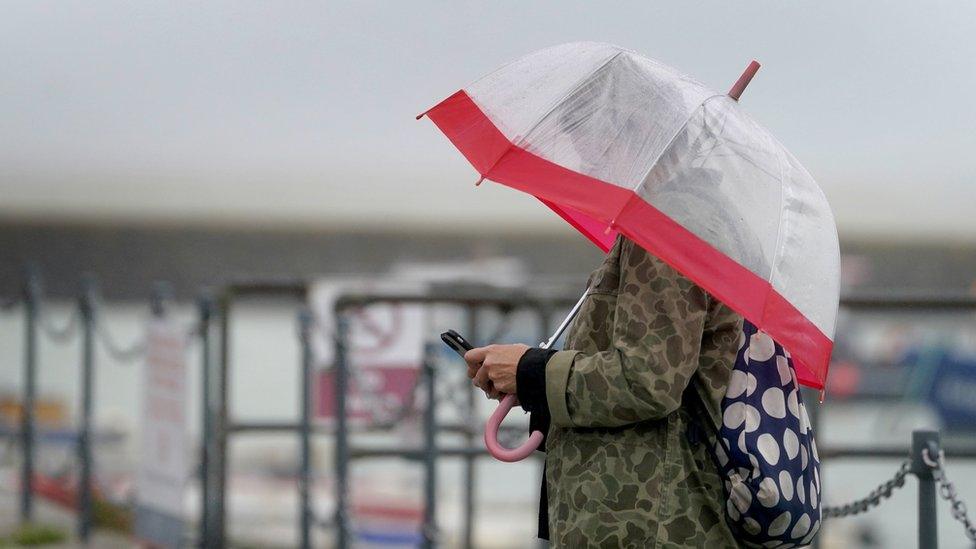Wet weather hitting critical harvest time, say farmers
- Published

Eleanor Gilbert said: "If we don't make a profit, our whole business is gone realistically."
One of the wettest Julys on record has left the UK's farmers desperate for drier weather to harvest crops and cut hay meadows. The BBC spent the day with two young farmers who say conditions have been a huge source of worry at a critical time.
Climbing into the cockpit of her combine harvester, 21-year-old Eleanor Gilbert is relieved at the rare window of dry weather in her patch of rain-soaked Berkshire.
"This morning, because the sun is finally shining, we are off to combine some oil seed rape on a farm a little bit further away," she says.
The crop - now in less than perfect condition - would ideally no longer be in the ground, but the farmer says she needs to be flexible - and act fast.
"There has been so much worry because we build up to this time of year, all year round.
"We've been growing these crops and if we don't make a profit, our whole business is gone realistically."
Watch: Farmer Eleanor Gilbert demonstrates the "bite test" on her harvest
Ms Gilbert farms near Thatcham with her sister Lucy, just 18 and taking part in the harvest for the first time this year.
"It's really difficult to actually manage to get the harvest in so we have had to go when it's dry weather, and that means quite late night sometimes," Lucy says.
"And when it is raining there is still so much to do in the yard preparing for the next time it is dry so you can get straight out and harvesting."
It is a familiar story for farmers all across the country.
The National Farmers' Union says the next 10 days are crucial for grain harvest at a time when the rising cost of electricity makes drying wet crops even more expensive.

Ms Gilbert farms near Thatcham with her sister Lucy
The head of the NFU's Combinable Crops Board, Matt Culley, says it has been a "slow start" to harvest season and they are braced for "negative impacts".
Karl Franklin, a West Oxfordshire farmer told the BBC this year's harvest was taking "twice as long" and costing a lot more.
"The lack of sunshine has meant that cutting and turning the crop is taking almost a week to do - which normally takes three days," the farmer said.
"Usually the crop is cut by end of June, I'll be lucky if it's completed mid-August."
When the crops are finally in, the grains need to be cleaned, graded, sorted and converted into an edible form. But in order to do this they need to be stored and dry.
Eleanor Gilbert says: "We can't physically combine the crop if it's too wet because it won't go through our big machines."
Inside the drying shed, she demonstrates a device that monitors the moisture level in the crops, plunging the reader into a vast pile of grains and taking a reading.
Moisture levels have dropped since the harvest came in, but it's still too wet to sell on.
"The grain must not be more than 15% moist otherwise we get rejected at the processors," she says.
Last week she said lost more than a third of her profit because the crop "was a little bit too wet".
She adds a call for practical public help - asking motorists to move over if they see a combine tractor on the roads, because they have such limited time to get the harvest complete.
But despite the challenges the weather poses, Ms Gilbert is determined to make the best of her harvest, and is hoping for a drier August.
"Farmers all across the UK are struggling," says Eleanor. "They are in the same position as we are."

Follow BBC South on Facebook, external, Twitter, external, or Instagram, external. Send your story ideas to south.newsonline@bbc.co.uk, external.
Related topics
- Published31 July 2023
